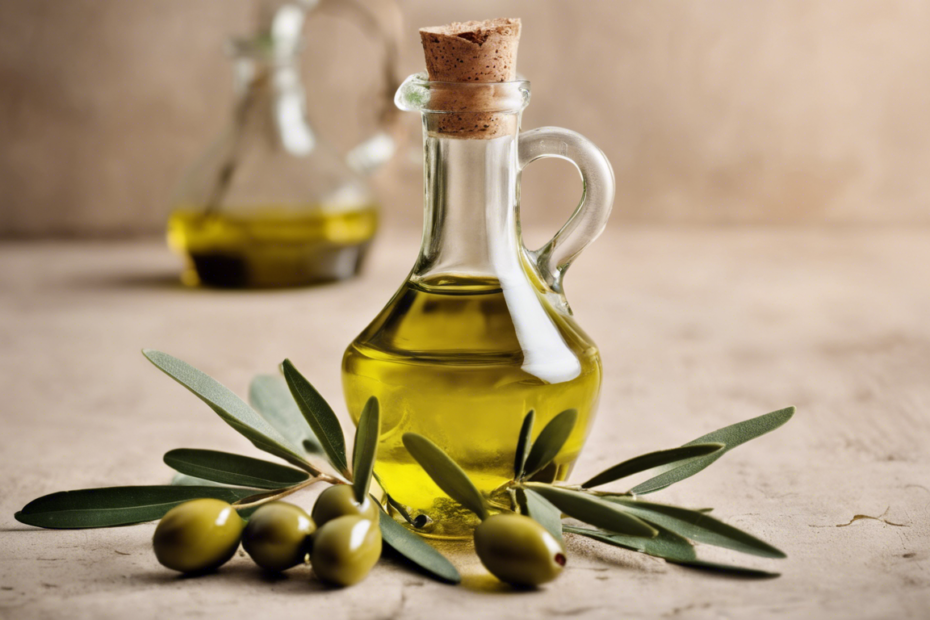Have you ever wondered what the hype around olive oil is really about?
Beyond its delicious flavor, olive oil boasts a remarkable array of health benefits that might just convince you to drizzle it over everything!
In this article, we’ll explore the nutritional powerhouse that is olive oil, dive into the research-backed health benefits it offers, and share practical tips on how to easily incorporate it into your daily meals.
Get ready to unlock the secrets of this liquid gold and discover how it can enhance both your dishes and your well-being!
Key Takeaways
- Olive oil is rich in antioxidants and healthy fats, making it a nutritious addition to your diet.
- Research supports that olive oil can lower the risk of heart disease and inflammation.
- Incorporating olive oil into meals can enhance flavor while boosting nutritional value.
- Using olive oil as a dressing or in cooking can easily fit into a healthy lifestyle.
- Experimenting with different types of olive oil can add variety to your culinary experiences.
Nutritional Profile of Olive Oil and Its Components
Olive oil is lauded not just for its delicious flavor but also for its impressive nutritional profile that packs numerous health benefits.
Rich in monounsaturated fats, especially oleic acid, it promotes heart health by maintaining healthy cholesterol levels and reducing inflammation in the body.
Loaded with antioxidants like vitamin E and polyphenols, olive oil fights oxidative stress, which can be a precursor to chronic diseases.
Research shows that those who regularly consume olive oil have a lower risk of heart disease, some cancers, and even neurodegenerative disorders like Alzheimer’s.
To reap these benefits, it’s super easy to incorporate olive oil into your diet—just drizzle it on your salads, use it as a dip for bread, or incorporate it into your cooking for a heart-healthy alternative to butter or margarine.
Whether you’re sautéing veggies, roasting meats, or even baking, a splash of olive oil can enhance both the taste and nutritional value of your meals!
Health Benefits Supported by Research
When diving into the benefits of olive oil, it’s hard not to get impressed by its nutritional profile.
This golden elixir is not just a delicious addition to your meals; it’s packed with healthy monounsaturated fats, antioxidants like vitamin E, and anti-inflammatory compounds that can work wonders for your health.
Research has shown that incorporating olive oil into your diet can lower the risks of heart disease, support brain health, and even promote longevity.
So, how do you make this beneficial oil a staple in your kitchen?
Drizzle it on your salads, use it as a dip for bread, or swap it for butter when sautéing vegetables.
You can also finish off grilled meats with a splash of olive oil for added flavor, or blend it into your smoothies for a nutrient boost.
With so many practical and tasty ways to introduce olive oil into your diet, you’ll be doing your body a favor without sacrificing flavor!
‘Let food be thy medicine and medicine be thy food.’ – Hippocrates
Practical Ways to Incorporate Olive Oil into Your Diet
If you’re wondering what the benefits of olive oil are and how to sneak it into your meals, you’re in for a treat!
First off, drizzle some extra virgin olive oil over your salads for a burst of flavor and those heart-healthy fats you’ve been hearing about.
Or, if you’re in the mood for something warm, use it to sauté your veggies instead of butter; it adds a lovely richness and classic Mediterranean taste.
You can even blend it into your smoothies for a creamy texture without the dairy.
Feeling adventurous?
Try dunking some fresh bread in a mix of olive oil and balsamic vinegar for a delicious appetizer that impresses without any fuss.
The key is to get creative; remember that olive oil isn’t just for cooking—it’s a versatile ingredient that can elevate almost any dish, from pasta to popcorn.
So next time you’re in the kitchen, grab that olive oil and start experimenting—you’ll love the tasty results and all those health benefits!
Frequently Asked Questions
What are the key nutritional components of olive oil?
Olive oil is rich in monounsaturated fats, particularly oleic acid, which is known for its heart health benefits.
It also contains antioxidants like vitamin E and polyphenols, which help protect your cells from damage.
How does olive oil contribute to heart health?
Research has shown that consuming olive oil can help lower bad cholesterol levels, reduce inflammation, and improve overall heart health, making it a staple in heart-healthy diets such as the Mediterranean diet.
Can olive oil help with weight management?
Yes, olive oil can aid in weight management.
Its healthy fats can promote a feeling of fullness, leading to reduced calorie intake, and its antioxidant properties may also enhance metabolic health.
What are some easy ways to include olive oil in my meals?
You can drizzle olive oil over salads, use it as a cooking oil for sautéing vegetables, or mix it with vinegar for a homemade salad dressing.
It can also be brushed on bread before toasting.
Is all olive oil the same, or are there different types?
Not all olive oils are created equal.
Extra virgin olive oil is considered the highest quality, as it’s made from pure, cold-pressed olives and retains the most nutrients and flavor compared to regular olive oil.
